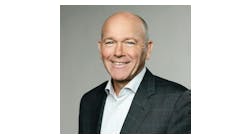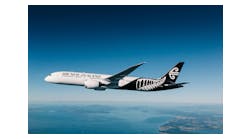Oct. 17--Daily flights from Salina to Denver can be provided, a SeaPort Airlines executive said Wednesday, but it might be too costly right now.
However, patience might prove fruitful.
During a public visit with Salina officials, Tim Sieber, SeaPort executive vice president, estimated that three daily flights west might cost $4 million a year in a combination of federal subsidies and local or state revenue guarantees.
The U.S. Department of Transportation is paying $1.43 million a year to SeaPort to provide three daily flights to Kansas City over the equivalent of six days a week -- one flight on Saturdays and two on Sundays.
"I'm open to Denver, if we can make the numbers work," Sieber told the gathering of Salina and Saline County officials.
Trimming one flight from Kansas City in favor of one to Denver might cost only another $1 million a year, he said.
"We have a long history of trying things, and also a long history of trying things that don't work, but we're not afraid to experiment," Sieber said.
Those numbers might work a lot better in a year or so, when SeaPort is operational with a new reservation system -- Amadeus Altea -- that is expected to streamline booking flights that connect with other airlines. It will smooth out travel glitches and make flying out of Salina more attractive than driving to another airport, he said.
Moreover, SeaPort will be able to reach more potential customers.
"We know we're only capturing a fraction of the traffic that's out there," Sieber said.
The Salina Airport Authority scheduled an open study session at the M.J. Kennedy Air Terminal. SeaPort President Rob McKinney was the planned guest, but a death in his family changed his plans. Sieber substituted for his boss.
In his prelude to discussions, Tim Rogers, airport authority executive director, reminded the audience of mostly elected officials that scheduled flights are not cheap.
"Air service in every Kansas community relies on a significant level of public funds, direct or indirect," he said. "It's a capital and labor intensive and a highly regulated industry."
Subsidies from federal, state and local sources are essential to help airlines "manage risk," Rogers said.
The good news now is that customer numbers are increasing, Sieber said, and with the Amadeus system making more air travelers available to SeaPort, even better times could be ahead.
"This (system) is the most robust reservation platform in the world," he boasted.
Amadeus will help SeaPort connect with bigger carriers, such as Alaska Airlines by March 22 and Delta in early May, Sieber said, and SeaPort is in talks with two other airlines.
"We're able to offer passengers more," Sieber said.
Instead of SeaPort landing at an outlying terminal and shuttling passengers to their connecting flights in the main terminal buildings of hub airports, SeaPort is working on securing a presence alongside the major players.
The new reservation system will cost SeaPort $500,000, plus monthly charges, Sieber said, but if the customers come calling, that expense is justified.
"It will cost a lot more, but we are pushing around a lot of empty seats," he said.
The new system is "a game changer," Sieber said, that could result in less of a need for subsidies in Essential Air Service communities such as Salina.
In fact, if the federal subsidy goes away, he said Salina is among the six or seven communities SeaPort serves that would survive.
"EAS was supposed to sunset at some point, and now we're 35 years out. It's an easy target," Sieber said. "We want all of our EAS communities to be able to stand on their own two feet by 2020."
SeaPort's best year in Salina was 2,699 passengers during 2011. He said 6,000 is possible in a year and 10,000 a year is "achievable."
The Denver question might be worth revisiting in a year, he said.
"If we can see traffic is up to Kansas City, we could absorb more of the costs," he said.
The conversation with Sieber was encouraging to Daran Neuschafer, chairman of the airport authority board.
"It allows the community and airport authority to know the landscape that is out there, in a much more specific framework," he said. "We knew it was going to cost some money. Now we know more."
More passengers boarding in Salina helps the community's position, Neuschafer said.
"Nothing I heard today makes me think that it's a pipe dream, but it depends on what our appetite is," he said. "The more successful we are from Salina to Kansas City helps our negotiations moving forward with something to the west."
-- Reporter Tim Unruh can be reached at 822-1419 or by email at [email protected].
Copyright 2013 - The Salina Journal, Kan.




